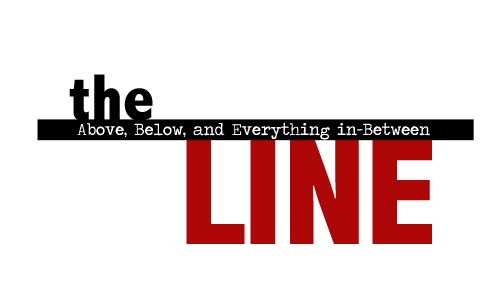So, without further ado, here's the whole thing - in four "blog-sized" segments! (I'll post my shorter story assignment in a few days).
Enjoy!
-----
Turning onto a quiet brownstone-lined street on Manhattan’s Upper West Side, I was sure Tony Gilroy’s office was within one of the charming, Triassic Sandstone dwellings. (Well, would-be quiet save for the construction crew set up mid-block, machinery whirring away.) But as the numbers tick down to the address I sought what stood before me was a fairly non-descript, flat-front, simple apartment building, not much taller than the brownstones which flanked its either side.
Buzzer only, no doorman. Was it 6F or 6E? I pause and dig through my always-overstuffed bag for the post-it on which I’d scrawled the unit number. Neither. Glad I checked.
The speaker crackles in the way speakers are wont to do, and a voice, which I suspect belongs to my host, invites me up. I’m suddenly nervous. Does he remember me? As I wait for the elevator, I think about the handful of times we’d met. Most of them were on the set of “Michael Clayton,” where I’d worked occasionally as a production assistant. I was so bundled to brave the cold on those days I fear I bore a striking, and not at all flattering, resemblance to the Michelin Man.
Stepping in the elevator, I recall a line from an elegant article in the “New Yorker.” It was something about Tony Gilroy’s “easy smile.” Was that it? Perhaps the line referred to Clive Owen’s character in “Duplicity.” Either way, the smile that greets me when I reach the sixth floor puts me at ease. Mostly. Whether Gilroy remembers meeting me before or not, he doesn’t let on, and we make casual conversation of the sort two old acquaintances might exchange after not seeing each other for a while.
So this is where Tony Gilroy writes. The space is modest, like its exterior: A kitchenette to the right; probably a tiny bathroom off that, perhaps another room beyond. I peek. Perhaps not.
It is a classic New York efficiency apartment, complete with aged wood flooring and moldings layered with decades of paint. It’s low maintenance, sparsely furnished and tidy: Two straight backed chairs; an unimposing credenza on one side; a few framed photographs, others tacked to a corkboard on the opposite wall; a Vornado 660 fan on the floor; a simple bamboo area rug. Facing two double-hung windows, a sturdy desk, the dominant fixture in the space, takes center stage. Atop sits a computer. A Dell, an HP? I can’t tell, but it has me transfixed. It holds the key to the burning question: What will Gilroy’s next project be?
He moves across the room – a quick task, maybe ten paces or so. “Should I close the window? Is it too noisy,” he asks, regarding the construction work on the street below.
Pausing, one hand on the pane, he looks back at me. He cracks a genuine Duchenne smile, “It’s kind of musical isn’t it?” I listen. He’s right. It’s gentler than the typical cacophonic din produced by jackhammers and drills. A melody fills the air, a pitch that slowly rises and falls. Smiling too, I agreed. What a unique observation.
Gilroy explains that before “Duplicity,” before the Oscar nomination and Director’s Guild win for “Michael Clayton,” before writing the “Bourne” series, “Proof of Life,” “The Devil’s Advocate,” “Dolores Claiborne,” and “The Cutting Edge” – he was a musician.




No comments:
Post a Comment